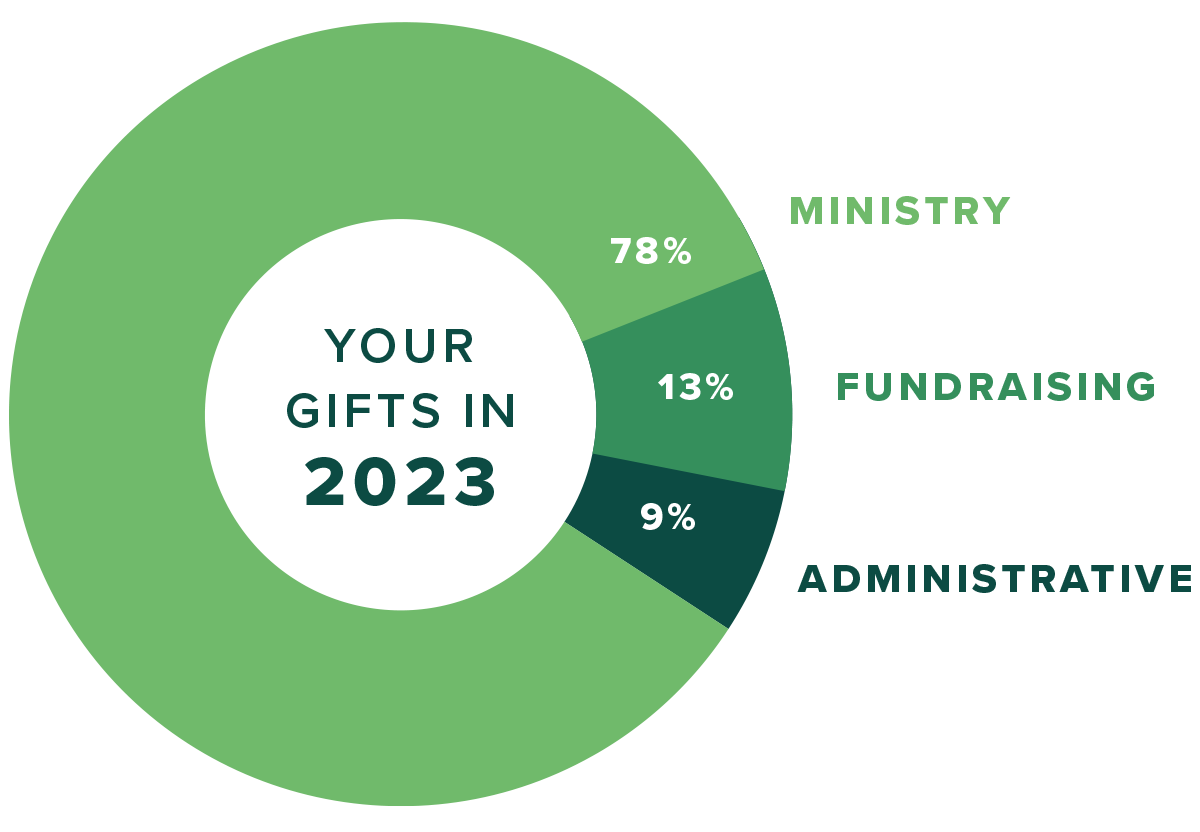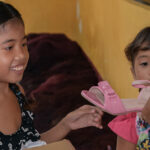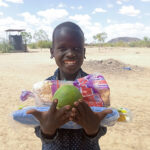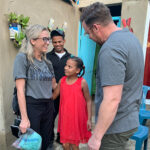One woman’s resolve to rescue an HIV-positive infant has grown to give thousands of orphans in Kenya loving families.
It’s midafternoon at New Life Home Trust in Nairobi, and each room in the bustling home is filled with abandoned babies. In one room, women are feeding babies a nutritious meal of spinach, grains, and lentils.
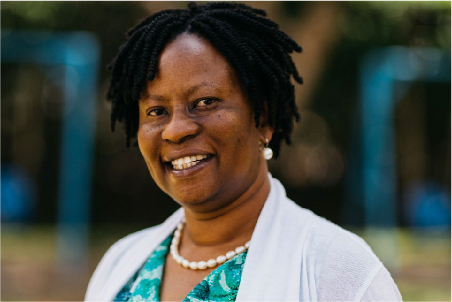
Dr. Janet Mutinda, National Director at New Life Home Trust.
In another room, women gently stroke babies’ hair as they rock them to sleep, and in another room, a woman is mopping the already pristine floors with a mixture of bleach and water. A car pulls up to the home, and caregivers and nurses rush outside to gather around it, clapping and bursting into song. An infant has just arrived.
“You have a purpose! You are not forgotten!” they sing. “You are loved! You have a name and a future.”
Gathered around this precious child, the women and men bring the baby into the home. They name her Esther. Then each person prays over Esther, thanking God for bringing her to the home and praying that He would show her just how valued she is.
This is how every baby is welcomed into New Life Home Trust. Dr. Janet Mutinda, National Director at New Life Home Trust, explains, “We pray for these children. In the same way they are de-linked physically with the umbilical cord at birth, we also de-link them spiritually from any rejection. Things that we may never know about their family, whether they were born out of rape or incest, we speak forward and say, ‘You will no longer be rejected.’ And we pray blessings. We speak over their lives. And then we give them a name — a positive name.”
Many children like Esther come to the home on the brink of death from a life in poverty, discarded like pieces of trash. Some have been rescued from garbage piles when good Samaritans and, in some instances, dogs found them. These infants desperately need medical care.
New Life Home Trust in Nairobi has state-of-the-art medical equipment to provide crucial care and hope to these infants on site. Kenyan doctors volunteer their time, and the home is staffed with nurses and volunteers 24 hours a day. Some doctors have been here since the home started 24 years ago.
This top-notch medical care means that Janet and her team can give priority to babies that orphanages are not equipped to take, such as HIV-affected children and children with special needs. Their mission is to rescue abandoned and vulnerable children, give them high standards of care, and place them in loving families. Their home has grown to include three other locations across Kenya in the counties where children are abandoned the most. To date, New Life Home Trust has rescued more than 2,000 children, bringing hope in hard places.

Mary Beckenham, co-founder of New Life Home Trust with her husband Clive. Photos by Tanner Wendell Stewart.
A Place to Die With Dignity
Mary Beckenham, co-founder of New Life Home Trust with her husband, Clive, was serving as a nurse in Kenya when she read a heartbreaking story about HIV-positive children in a hospital in Kenya. These children were put in isolation wards and given little food — or hope.
“Nobody knew what this disease was,” Janet says.” Everybody was scared of it. Even the medical fraternity was scared of the disease. There was a time we thought that if you touched an HIV-positive person they were contagious.”
Mary took one of these abandoned babies home to care for him in what she thought would be his last days. Mary says, “I thought, even if it’s two hours, he’ll be bathed, he’ll be loved, he’ll have the best two hours of his life in my arms.”
To Mary’s delight and surprise, the baby survived — and thrived. He is now a healthy 26-year-old. Mary says, “When I saw the baby survive, I thought, ‘If this one survived, what about the many others?’” And so Mary and Clive embarked on a journey to rescue more at-risk children, including HIV-affected infants.
Today, advances in medical care and ARV (antiretroviral therapy) treatment mean that infants exposed to HIV and given ARVs soon after birth usually become HIV-negative, and children who are HIV-positive can expect to live long, productive lives and experience normal child development milestones.
Some children at New Life Home Trust who are HIV-positive have never been adopted and are now teens. Caring for them can be a challenge, but it is one Janet and her team approach with the same love and care they give to their infants.
They focus on helping teens stay hopeful, goal-oriented, and committed to taking their ARV medicines.
“We help our older kids to know it’s just a disease,” Janet says. “Somebody else has diabetes, somebody else has something else. It’s nothing to be ashamed of.” Under their care and guidance, children are going to school, taking their medicines, and some will soon be applying to university.
“It’s just incredible,” Mary says, “to think this started as a hospice. We never imagined it would grow like it has.”
We are accountable to the children we serve AND to our donors.
Our accountability to our donors is one of our highest priorities. Our goal is to use the funds entrusted to us as wise stewards. To do this requires continued monitoring of our fund distribution. OneChild is also a member in good standing with the Evangelical Council for Financial Accountability (ECFA)
